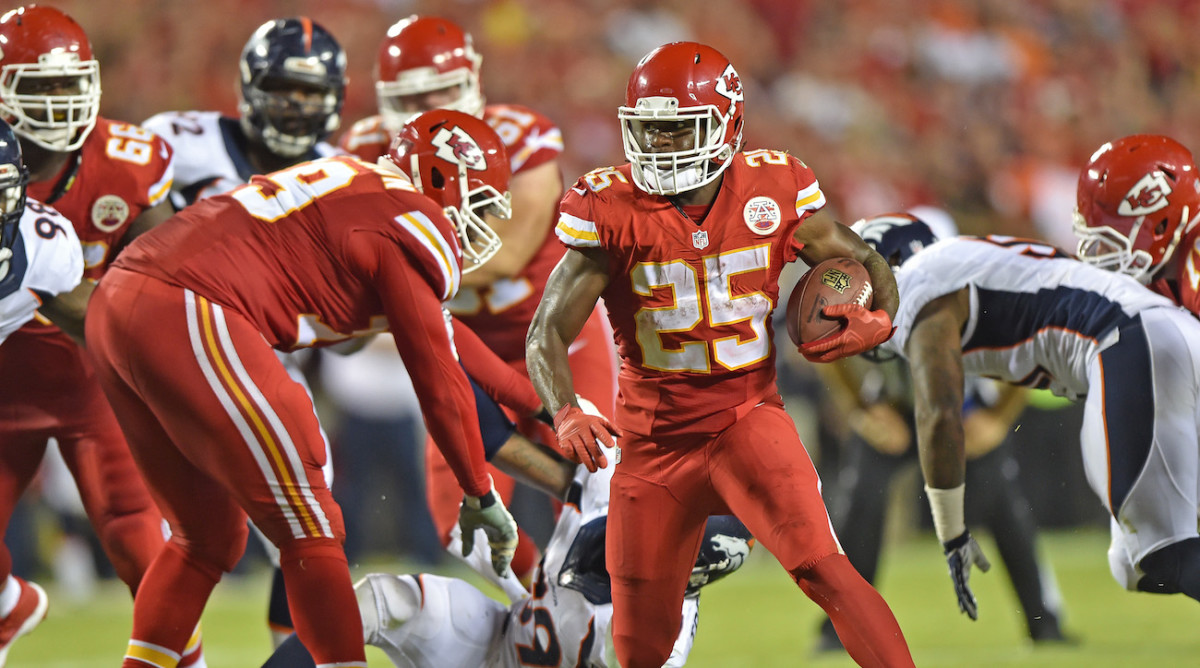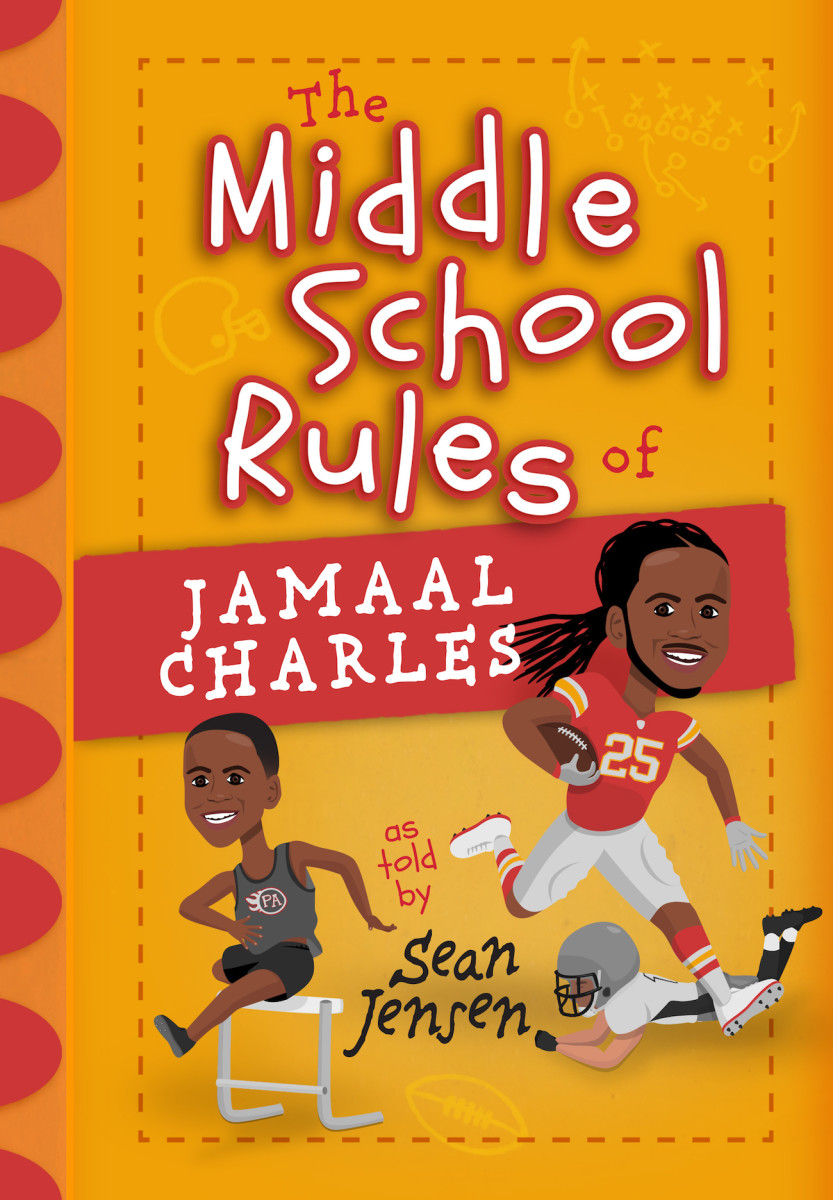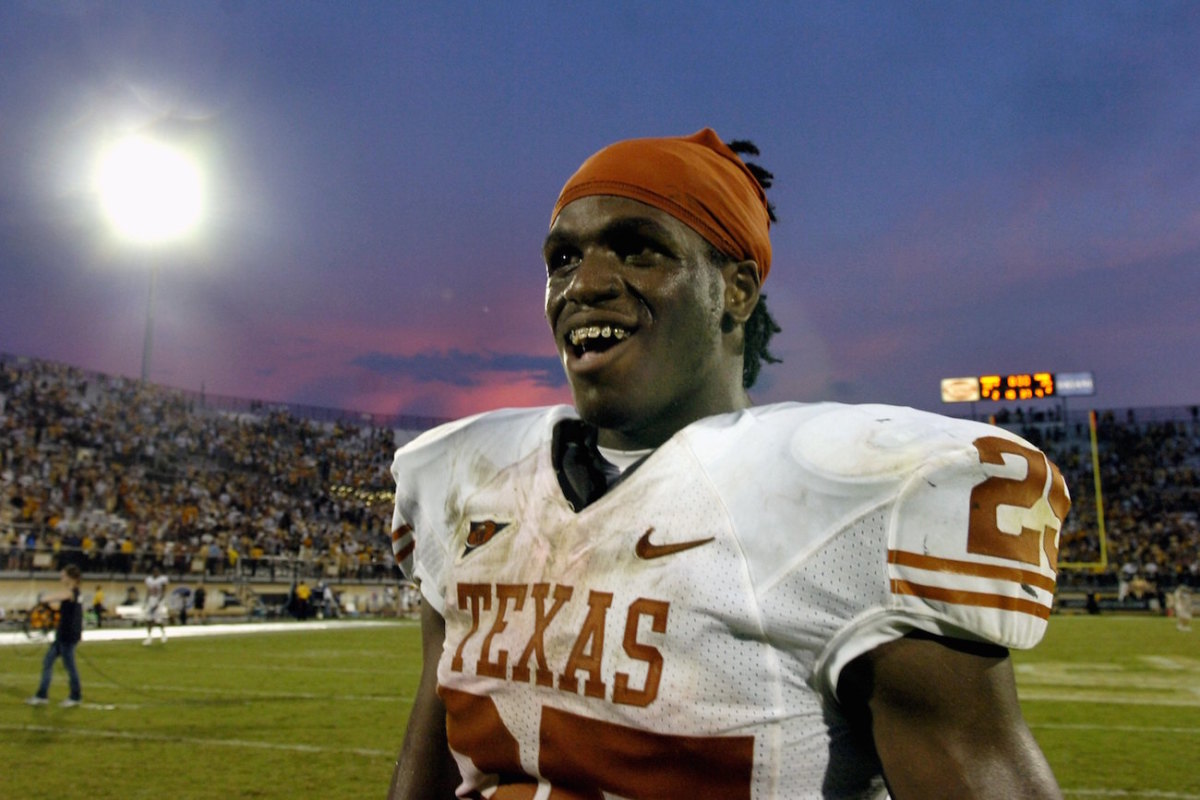New Book Follows Jamaal Charles from Small Town to NFL Stardom


In the introduction to The Middle School Rules of Jamaal Charles, the NFL running back gives advice to young people everywhere about never giving up and never being afraid to ask for help. The book, as told by Sean Jensen, talks about how life could be hard for Charles as the youngest in a large Texas household because he would get picked on. However, he found his passion in football and track.
Charles also grew up with a learning disability, which meant it could be difficult for him to be accepted into his community and be given the same opportunities as other kids. He worked hard at school, though, and had the courage to focus on areas in which he was weak. He persevered and eventually became an academic All-America at the University of Texas. Charles, who has a career NFL total of 7,260 yards, is the father of two daughters and the founder of the Jamaal Charles Family Foundation. SI Kids spoke to the current free agent about family, overcoming obstacles on and off the field, and giving back to the community.

You had three brothers and many cousins nearby while you were growing up. What was your favorite thing about growing up with so much family and so many siblings?
Growing up with a lot of family, we all had someone to play with. We were never lonely. We all had a great time with each other growing up playing with each other, having fun with each other.
What was your least favorite thing?
That everybody left before me. I had to stay home while everybody ended up going…that was the only thing. Like when you’re the baby, you get left behind. I got lonely when everybody left.
The book talks about how you used to get picked on. What advice would you give to kids who are going through the same thing?
You get picked on by all types of people. You get picked on by your family, by your classroom, also you can pick on other people yourself. But nobody wants to get picked on or wants to be bullied. To get over that conflict, you’ve got to be good in your skin and know who you are. It can be hard knowing who you are when you’re little. You have to grow to figure out who you really are as a person so that you can feel good in your skin. If you have a parent in your life or somebody who you look up to, they can teach you how to be good in your own skin. That’s what we should teach the little ones growing up.
You’ve created the Jamaal Charles Youth Matters Family Foundation, which works to promote a healthy mind and body among kids. What motivated you to do so?
My vision was that I wanted to help people who had learning disabilities, which were the struggles that were going on with me. So I tried to give scholarships to people in my community with learning disabilities. I try to do a lot with the Special Olympics as well. I do football camps. I do a lot of different stuff. I want to help everybody I can help. If I can help either with my money or with my time, I will.
Growing up, school could be hard because of your learning disability. How did those experiences affect you, and what advice would you give to kids who are going through the same thing?
It affected me when I found out I had a learning disability because at that young age, back in the day, people wouldn’t tell you that you could still be smart. They just put that on you and you felt like a dog. When I get older that’s when it all got better and better. That’s when I really started being comfortable with who I am because I was scared to open up. I was a shy kid because I had a learning disability. I felt like I wasn’t able to go anywhere. When you have a learning disability, they don’t tell you that you can be anything that you want.

With sports, it was easy for me. The only thing that I was weak in was school. So I didn’t shy away from school. Most of the time, people shy away from what they’re weak in, and that was me for so long. You have to build that thing up so you can get stronger. When I got the help I had at [Texas] I thought I’d get interested again, so I tried to build in what I was weak in and work in the classroom on that stuff. That’s how you get stronger. That’s when my spark started coming on. That’s how I became an academic All-America, because I fell in love with the things that I was weak in.
In addition to being an amazing football player, you were also a track and field star. In what ways did track and field influence your football career?
Track was my first love because I felt like I could go somewhere in my life. I ran the Junior Olympics, so when I played football I tried to take the track to football. I wanted to go far in football as well. When I was able to take the talent to football from track, I was able to see how far I could go in football. I think when I saw how far I could go in football, I just took the shot to stay with football.
Who were your role models growing up?
My role model was my brother ShanDerrick. He was a talented, smart person; I wanted to be just like him.
This interview has been edited for length and clarity.
Photographs by (from top): Peter G. Aiken/Getty Images; © 2017 Broadstreet Publishing; Al Messerschmidt/Getty Images
